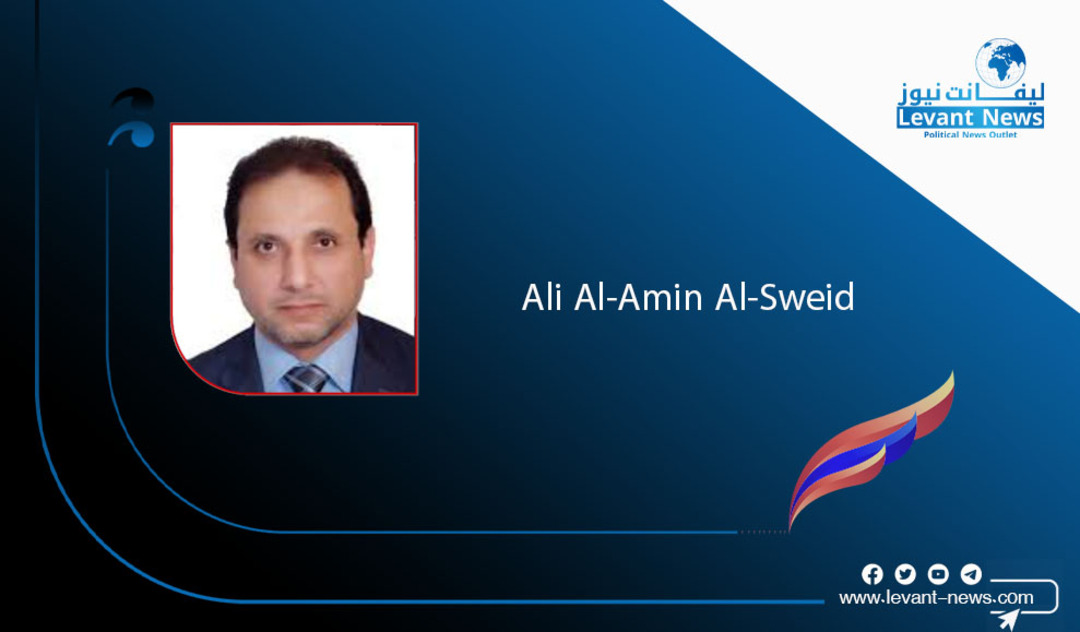-
The Swinging Dreams of Turkey in Syria

Those following the Syrian scene are puzzled by the reasons behind the Turkish-Israeli rush and competition over Syrian territory. Despite the strong security, strategic, and economic ties between Turkey and Israel—especially during the era of the Justice and Development Party under President Recep Tayyip Erdoğan—a hidden rivalry comes to the forefront, particularly in the Syrian context. What is the secret behind this tension? Why is Israel escalating military actions against sites believed to be utilized by Turkey?
The Project of Turkish Guardianship in Syria for Years
Turkey has sought to impose guardianship over Syria through agreements with the fallen Syrian regime, allowing it to control state mechanisms politically, militarily, and economically, under the pretext of fighting terrorism represented by the Kurdistan Workers' Party and the Islamic State organization. Erdoğan has repeatedly offered to meet with Assad, hoping to persuade him to enter a Turkish axis in exchange for maintaining his power. However, the regime's obstinacy and subjugation to Iranian influence thwarted Turkish ambitions, prompting Ankara to apply indirect military pressure through Hayat Tahrir al-Sham. At the beginning of last year, Hayat Tahrir al-Sham moved in a way that misled the Syrian regime into believing that the opening of front lines in Idlib was imminent, forcing Russia to call for the Astana Conference 23.
The Game of Escalation and De-escalation
Turkey responded with a façade of de-escalation, informing Hayat Tahrir al-Sham that it would not accept its wounded in the event of an attack, which led the group to retreat. Afterwards, a stalemate ensued, and Turkey returned to attempt to exploit Syrian weakness to impose its control. However, the Assad regime once again ignored Ankara, with Assad personally humiliating Erdoğan publicly. At that point, Turkey pushed Hayat Tahrir al-Sham again toward the regime's fronts in the north and east, successfully advancing after the collapse of the regime's defensive lines, leading to an urgent movement from the Russia-Iran-Turkey axis, opening the door for the group to advance toward Damascus, resulting in the swift downfall of the Assad regime.
Turkey After the Regime's Fall
Turkey immediately announced its support for the new government led by Ahmad al-Shara, seeking to solidify its presence through exceptional relations and maritime boundary demarcation. This move alarmed the Europeans, who tried to pressure the new Syrian government with promises of lifting or reinforcing sanctions. However, despite the official fall of the regime, the ground reality did not change much. Israel continued its airstrikes, the Syrian army remained weak, and the new government did not issue any clarifications. Meanwhile, Turkey began to move freely in Syria without officially announcing agreements with Damascus.
Turkey's Economic Objectives
These moves reveal clear economic objectives:
- Controlling exploration and extraction operations via Turkish companies like the Turkish Petroleum Company or through contracts with foreign companies under Turkish conditions. Turkey may seek to renegotiate previously signed contracts with Russia and Iran to share profits.
- Redrawing maritime borders in favor of Turkey, as it did with the Libyan Government of National Accord in 2019, when it signed a memorandum of understanding to delineate exclusive economic areas, causing international disputes.
- Connecting Syrian gas to Turkish infrastructure by laying gas pipelines through Turkey to Europe or by attempting to incorporate Syrian gas into regional projects like the East Mediterranean Gas Forum, despite Turkey's exclusion from it.
- Using resources as a political leverage, much like it used the refugee issue previously; Turkey might use Syrian gas to exert political and economic pressure on Europe.
Regional Influence Struggle
Turkey's success in Syria means weakening Russia and Iran, transforming Ankara into a regional power controlling trade and energy in the Eastern Mediterranean. This is unwelcome by active Arab countries, Israel, and Europe. In conclusion, we face the pivotal question: Will Turkey give up its last opportunity to control Syria?
So far, all parties continue to execute their agendas in silence, despite repeated Israeli strikes and the absence of any official stance from the new Syrian government. Thus, it seems that Turkey is moving forward with its project, benefiting from the Syrian collapse, and is striving to become the new "giant of the East," despite all regional and international challenges.
You May Also Like
Popular Posts
Caricature
BENEFIT Sponsors BuildHer...
- April 23, 2025
BENEFIT, the Kingdom’s innovator and leading company in Fintech and electronic financial transactions service, has sponsored the BuildHer CityHack 2025 Hackathon, a two-day event spearheaded by the College of Engineering and Technology at the Royal University for Women (RUW).
Aimed at secondary school students, the event brought together a distinguished group of academic professionals and technology experts to mentor and inspire young participants.
More than 100 high school students from across the Kingdom of Bahrain took part in the hackathon, which featured an intensive programme of training workshops and hands-on sessions. These activities were tailored to enhance participants’ critical thinking, collaborative problem-solving, and team-building capabilities, while also encouraging the development of practical and sustainable solutions to contemporary challenges using modern technological tools.
BENEFIT’s Chief Executive Mr. Abdulwahed AlJanahi, commented: “Our support for this educational hackathon reflects our long-term strategic vision to nurture the talents of emerging national youth and empower the next generation of accomplished female leaders in technology. By fostering creativity and innovation, we aim to contribute meaningfully to Bahrain’s comprehensive development goals and align with the aspirations outlined in the Kingdom’s Vision 2030—an ambition in which BENEFIT plays a central role.”
Professor Riyadh Yousif Hamzah, President of the Royal University for Women, commented: “This initiative reflects our commitment to advancing women in STEM fields. We're cultivating a generation of creative, solution-driven female leaders who will drive national development. Our partnership with BENEFIT exemplifies the powerful synergy between academia and private sector in supporting educational innovation.”
Hanan Abdulla Hasan, Senior Manager, PR & Communication at BENEFIT, said: “We are honoured to collaborate with RUW in supporting this remarkable technology-focused event. It highlights our commitment to social responsibility, and our ongoing efforts to enhance the digital and innovation capabilities of young Bahraini women and foster their ability to harness technological tools in the service of a smarter, more sustainable future.”
For his part, Dr. Humam ElAgha, Acting Dean of the College of Engineering and Technology at the University, said: “BuildHer CityHack 2025 embodies our hands-on approach to education. By tackling real-world problems through creative thinking and sustainable solutions, we're preparing women to thrive in the knowledge economy – a cornerstone of the University's vision.”
opinion
Report
ads
Newsletter
Subscribe to our mailing list to get the new updates!





















